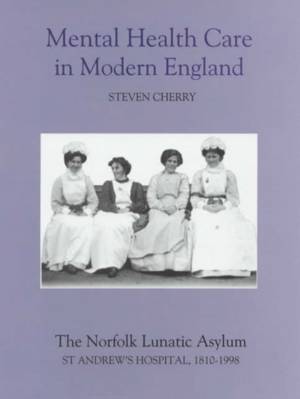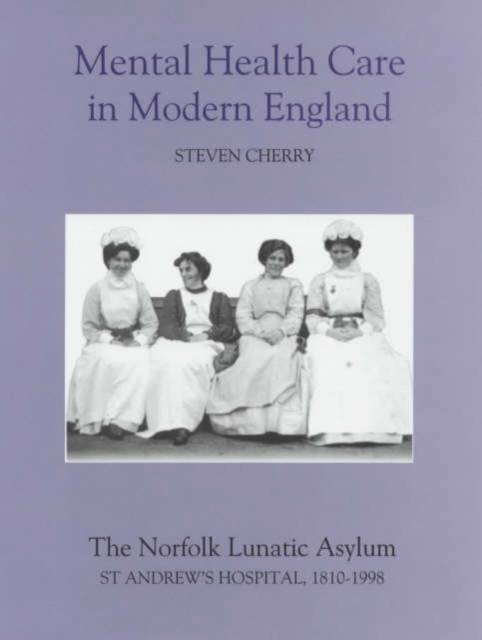
Bedankt voor het vertrouwen het afgelopen jaar! Om jou te bedanken bieden we GRATIS verzending (in België) aan op alles gedurende de hele maand januari.
- Afhalen na 1 uur in een winkel met voorraad
- In januari gratis thuislevering in België
- Ruim aanbod met 7 miljoen producten
Bedankt voor het vertrouwen het afgelopen jaar! Om jou te bedanken bieden we GRATIS verzending (in België) aan op alles gedurende de hele maand januari.
- Afhalen na 1 uur in een winkel met voorraad
- In januari gratis thuislevering in België
- Ruim aanbod met 7 miljoen producten
Zoeken
Mental Health Care in Modern England
The Norfolk Lunatic Asylum/St Andrew's Hospital, 1810-1998
Steven Cherry
Hardcover | Engels
€ 209,45
+ 418 punten
Omschrijving
The Norfolk Lunatic Asylum opened in 1814 as a pioneer county pauper institution and in 1998 St Andrew's featured among the last of the large psychiatric hospital closures. This history of one particular place for 'madness' covers changing approaches to insanity and treatments over two centuries. It draws extensively upon archival sources to examine the use of buildings and environments; the regimes of long-serving masters, superintendents and medical superintendents; the patients' own experiences; and the rationales, including cultural and gender issues, which informed therapies, relationships and hospital life. However, the contexts of national policies and economic constraints, professional and therapeutic developments, local economy and society, and current research findings are also acknowledged. Chapters dealing with the asylum's transformation as the 1915-19 Norfolk War Hospital and 1940-47 Emergency Hospital have disturbing revelations concerning wartime mental health care: similarly with the loss of local accountability and the experience of resource control under the National Health Service. Interviews with former staff and current personnel recall first-hand experiences of hospital life since the 1920s, the privations of wartime and the early NHS, hopes for new medications and conflicting views surrounding the closure of St Andrew's and the delivery of community mental health care. STEVEN CHERRY is senior lecturer in history, Wellcome Unit for the History of Medicine, University of East Anglia.
Specificaties
Betrokkenen
- Auteur(s):
- Uitgeverij:
Inhoud
- Aantal bladzijden:
- 347
- Taal:
- Engels
Eigenschappen
- Productcode (EAN):
- 9780851159201
- Verschijningsdatum:
- 28/02/2003
- Uitvoering:
- Hardcover
- Formaat:
- Genaaid
- Afmetingen:
- 164 mm x 241 mm
- Gewicht:
- 943 g

Alleen bij Standaard Boekhandel
+ 418 punten op je klantenkaart van Standaard Boekhandel
Beoordelingen
We publiceren alleen reviews die voldoen aan de voorwaarden voor reviews. Bekijk onze voorwaarden voor reviews.









